Nerve pain or Neuralgia meet more and more people in Germany. Many ask themselves: How do you recognize nerve pain and can you cure it?
What is Nerve Pain?

Nerve pain is also summarized under the technical term neuralgia. It is stabbing, short-lasting pain that occurs and spreads in the narrower area of one or more nerves.
It can best be compared to a lightning strike. There is often no symptoms between the individual pain attacks. The facial region and the sciatic nerve are most commonly affected. Nerve pain is one of the most painful of all pains.
Nerve pain is divided according to the degree of nerve damage. Nerve pain can show damage to the medullary sheath. Extreme pain is the result. If only the nerve fiber is damaged, nerve pain often leads to a feeling of numbness, which can also turn into severe pain. Nerve pain can also occur with circulatory disorders in the nerve.
causes
Nerve pain has many causes. As a rule, they are caused by damage to nerves that run peripherally in the body. That means: the brain and spinal cord are mostly excluded.
Nerve pain can result from excessive pressure, for example in the case of a herniated disc. In addition, chemical burns, radiation and inflammation can lead to nerve pain. Metabolic disorders such as diabetes mellitus or obesity can also be the cause of nerve pain. A viral disease such as the flu or malaria can also lead to nerve pain.
Nerve pain can also occur after a limb is amputated. They are known as phantom pain. Nerve pain can be acute or chronic.
You can find your medication here
➔ Medicines for painDiseases with this symptom
- Circulatory disorders
- Lyme disease
- disc prolapse
- Phantom pain
- Diabetes mellitus
- Obesity
Diagnosis & course
Nerve pain is not immediately recognized as such at the beginning. For this reason, it always takes a few months before the person concerned presents himself to the specialist. Typically, nerve pain is recognized using standardized questionnaires.
This is followed by the neurological examination. Sensory disturbances but also problems with going to the toilet can then be used to identify the correct diagnosis. Tests of the blood and urine complete the picture. The neurologist also measures the nerve conduction velocity and electrical activity in the region affected by nerve pain in order to initiate the necessary steps.
The sooner nerve pain is recognized, the better the chances of recovery. After all, the risk of lasting damage increases with time. In the worst case, only the frequency and severity of the pain can be reduced.
Complications
If left untreated, the nerve pain increases qualitatively and quantitatively in most cases. Movement restrictions and poor posture are complications that arise as a result. Daily tasks or sporting activities can no longer be carried out. The state of mind suffers.
Poor physical posture causes muscle tension and pain all over the body. Well-being is significantly reduced. Mood swings occur and irritability is possible. Interpersonal relationships are stressed and can lead to problems both privately and professionally. Quarrels, misunderstandings and conflicts arise. The pain often leads to a lack of sleep.
The person concerned feels weak and weak. Due to the lack of sleep, the regeneration of the body cannot take place as necessary. This puts a strain on the entire organism and the functioning of all systems. Taking medication triggers side effects such as stomach pain, attention deficit or headache.
Circulatory problems or a feeling of numbness on the skin are other complications. Some people develop high blood pressure. In severe cases, there is a risk of cardiovascular problems or a heart attack. The nerve pain can cause irreparable damage in the organism despite treatment measures. If the nerve dies, individual systems or organs will malfunction. When a part of the body is amputated, phantom pain still occurs, which is assigned to nerve pain. They are stressful for the person concerned.
When should you go to the doctor?
Nerve pain indicates a serious underlying disease and must be clarified by a doctor. A visit to the doctor is recommended when the first sensory disturbances or other symptoms that cannot be alleviated by conventional measures are recommended. Unfathomable pain in the arms, legs or spine should be documented in a complaint diary and discussed with the family doctor as soon as possible.
A doctor's visit is particularly urgent if problems occur when using the toilet. Then the nerve disease may have progressed and caused lasting damage. If you suspect a herniated disc, we recommend going to the hospital. Likewise, if there is a suspicion of AIDS, Lyme disease or a viral flu, because nerve pain is often a result of these viral diseases.
Burning nerve pain can indicate diabetes or herpes zoster and should be clarified immediately. The same applies if the symptoms arise as a result of an infection with chickenpox or after an accident or fall. After an operation, nerve pain indicates a complication that needs to be examined by the treating doctor and treated if necessary.
Doctors & therapists in your area
Treatment & Therapy
Nerve pain should by no means only be treated with conventional medicine. Nerve pain starts with medication to make the pain bearable. These include pain relievers, anti-epileptic drugs, or antidepressants. But neither does it fight the cause, nor does anyone want to swallow pills over the long term.
Physiotherapy and osteopathy can help. Especially in the case of the well-known trigeminal neuralgia, an operation can sometimes reduce the symptoms. Here, the roots of the nerves are severed to stop the unbearable nerve pain. Nevertheless, more and more doctors are also using homeopathic medicines for nerve pain. Acupuncture can be helpful. The fine needles release tension and take the pressure off the nerve.
One should not forget that nerve pain can also be an expression of overload. The inner balance can help that nerve pain disappear permanently. It is important to avoid alcohol and cigarettes if you have nerve pain. Heat packs and the absolute avoidance of hypothermia and colds have also proven to be helpful. Many doctors also prefer to be given vitamin B12. It is injected into the muscle or under the skin.
Outlook & forecast
It usually takes a relatively long time before the patient decides to see a doctor about the nerve pain. The person affected often has sensory disturbances or can no longer perceive certain feelings properly.
Due to the nerve pain, certain everyday tasks can no longer be carried out easily. In many cases, sporting activities are no longer possible. Muscle tension and mood swings often occur if the nerve pain is not treated. In addition to the nerve pain itself, there are often dizziness, headaches or pain in the stomach and lower abdomen.
In some cases, cutting the nerves can stop the pain, but this will require surgery. Often the patient can fight the nerve pain himself through a healthy lifestyle. This definitely includes giving up alcohol and cigarettes. Warmth also has a positive effect on nerve pain. However, they cannot be treated completely in all cases.
You can find your medication here
➔ Medicines for painprevention
Nerve pain can only be prevented to a limited extent. Damage to the nerves due to mechanical pressure can happen unprepared. Nobody can predict when a herniated disc will occur. At this moment, the victim is helpless and exposed to the shooting pain. But it seems important to avoid any stress in life.
As pain and nerve pain often arise from overload, you should keep yourself healthy with regular exercise (jogging, walking, cycling, swimming). In addition, a body that is used to changing conditions compensates for stress more quickly. The balance of body and soul can prevent nerve pain from developing.
You can do that yourself
Nerve pain is often incurable because the damaged nerve cells cannot regenerate completely. The system responsible for the transmission of pain is disturbed by illness, injury or infection. However, those affected have options to alleviate the pain somewhat.
Nerve pain is stabbing or burning with varying degrees of intensity. They occur spontaneously, in the form of attacks. The skin on the affected area is overly sensitive and reacts to the slightest touch. If no cause-related treatment is possible, pain therapy should start as early as possible to avoid a chronic course. Basic drug treatment is almost always required. In addition, the patient can influence the intensity of the pain with psychological therapies. Gentle behavior should be largely reduced, because one-sided stress leads to further restrictions of the musculoskeletal system and creates new pain elsewhere.
Occupational therapy can help to increase satisfaction in everyday life. Learning relaxation techniques is helpful. Physical therapies are also used in combination with pain medication. Here, for example, weak current treatments have proven their worth. Acupuncture can also be helpful, depending on the underlying disease. Physical activity is important because when you are inactive, the muscles atrophy, the nerves surrounding them cramp up and can make the pain worse. Those affected experience support in self-help groups, which has a positive effect on the psyche.

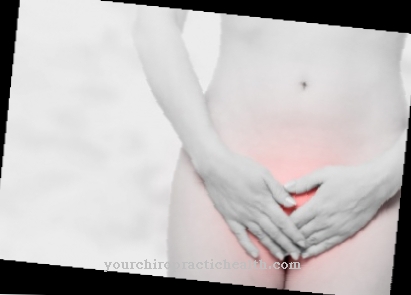

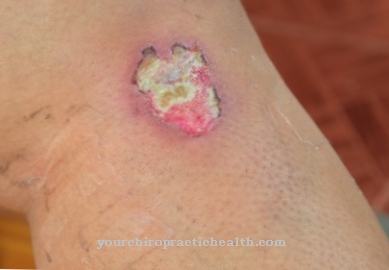
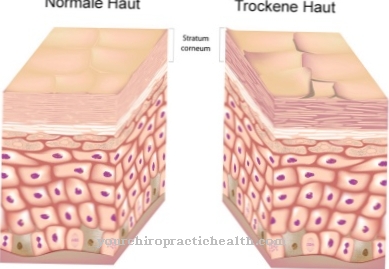

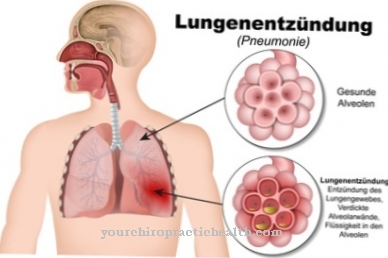





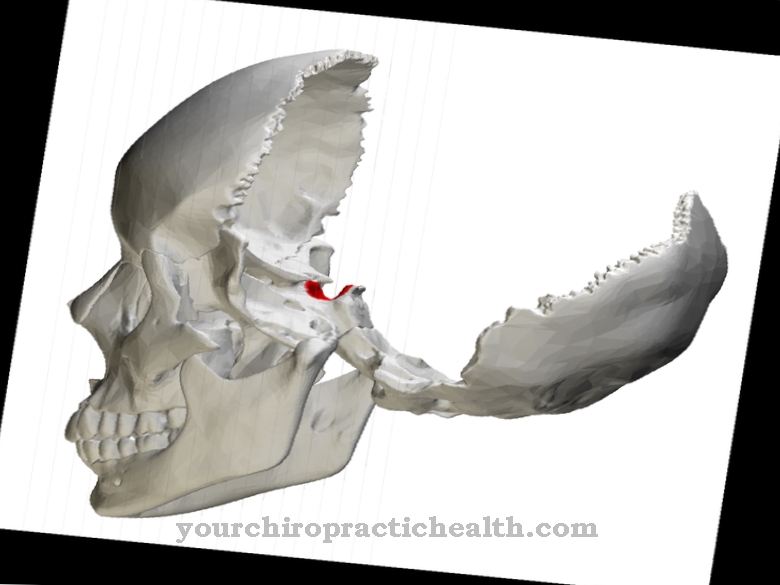
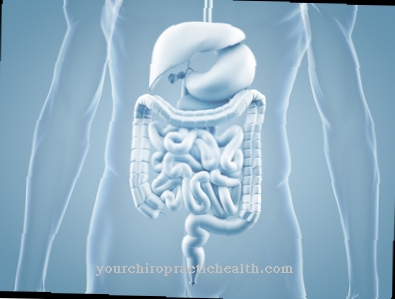


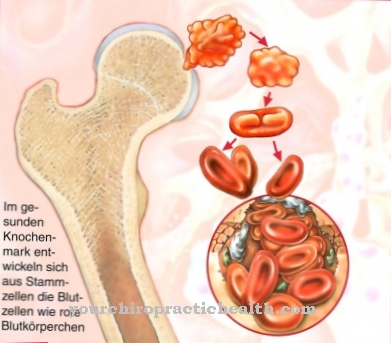


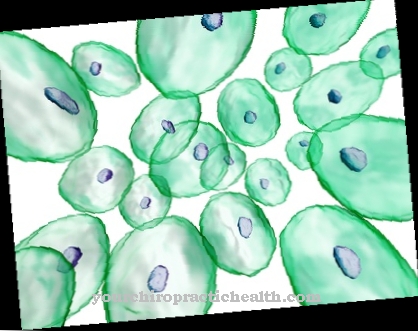



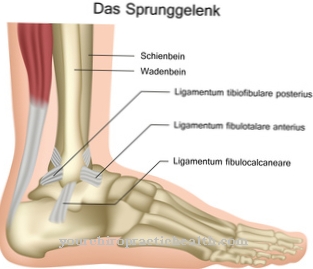

.jpg)

.jpg)
